
"The answer itself doesn't matter. What matters is that you made a choice."
33 posts
Gendered Pronouns In Japanese Vs English
Gendered pronouns in Japanese vs English
In Revolutionary Girl Utena, the main character Utena is a girl (it says so in the title), but very conspicuously uses the masculine first person pronoun 僕 (boku) and dresses in (a variation of) the boys school uniform. Utena's gender, and gender in general, is a core theme of the work. And yet, I haven’t seen a single translation or analysis post where anyone considers using anything other than she/her for Utena when speaking of her in English. This made me wonder: how does one’s choice of pronouns in Japanese correspond to what one’s preferred pronouns would be in English?

There are 3 main differences between gendered pronouns in Japanese vs English
Japanese pronouns are used to refer to yourself (first-person), while English pronouns are used to refer to others (third-person)
The Japanese pronoun you use will differ based on context
Japanese pronouns signify more than just gender
Let’s look at each of these differences in turn and how these differences might lead to a seeming incongruity between one’s Japanese pronoun choice and one’s English pronoun choice (such as the 僕 (boku) vs she/her discrepancy with Utena).
Part 1: First-person vs third-person
While Japanese does technically have gendered third person pronouns (彼、彼女) they are used infrequently¹ and have much less cultural importance placed on them than English third person pronouns. Therefore, I would argue that the cultural equivalent of the gender-signifying third-person pronoun in English is the Japanese first-person pronoun. Much like English “pronouns in bio”, Japanese first-person pronoun choice is considered an expression of identity.
Japanese pronouns are used exclusively to refer to yourself, and therefore a speaker can change the pronoun they’re using for themself on a whim, sometimes mid-conversation, without it being much of an incident. Meanwhile in English, Marquis Bey argues that “Pronouns are like tiny vessels of verification that others are picking up what you are putting down” (2021). By having others use them and externally verify the internal truth of one’s gender, English pronouns, I believe, are seen as more truthful, less frivolous, than Japanese pronouns. They are seen as signifying an objective truth of the referent’s gender; if not objective then at least socially agreed-upon, while Japanese pronouns only signify how the subject feels at this particular moment — purely subjective.
Part 2: Context dependent pronoun use
Japanese speakers often don’t use just one pronoun. As you can see in the below chart, a young man using 俺 (ore) among friends might use 私 (watashi) or 自分 (jibun) when speaking to a teacher. This complicates the idea that these pronouns are gendered, because their gendering depends heavily on context. A man using 私 (watashi) to a teacher is gender-conforming, a man using 私 (watashi) while drinking with friends is gender-non-conforming. Again, this reinforces the relative instability of Japanese pronoun choice, and distances it from gender.

Part 3: Signifying more than gender
English pronouns signify little besides the gender of the antecedent. Because of this, pronouns in English have come to be a shorthand for expressing one’s own gender experience - they reflect an internal gendered truth. However, Japanese pronoun choice doesn’t reflect an “internal truth” of gender. It can signify multiple aspects of your self - gender, sexuality, personality.
For example, 僕 (boku) is used by gay men to communicate that they are bottoms, contrasted with the use of 俺 (ore) by tops. 僕 (boku) may also be used by softer, academic men and boys (in casual contexts - note that many men use 僕 (boku) in more formal contexts) as a personality signifier - maybe to communicate something as simplistic as “I’m not the kind of guy who’s into sports.” 俺 (ore) could be used by a butch lesbian who still strongly identifies as a woman, in order to signify sexuality and an assertive personality. 私 (watashi) may be used by people of all genders to convey professionalism. The list goes on.
I believe this is what’s happening with Utena - she is signifying her rebellion against traditional feminine gender roles with her use of 僕 (boku), but as part of this rebellion, she necessarily must still be a girl. Rather than saying “girls don’t use boku, so I’m not a girl”, her pronoun choice is saying “your conception of femininity is bullshit, girls can use boku too”.

Through translation, gendered assumptions need to be made, sometimes about real people. Remember that he/they, she/her, they/them are purely English linguistic constructs, and don’t correspond directly to one’s gender, just as they don’t correspond directly to the Japanese pronouns one might use. Imagine a scenario where you are translating a news story about a Japanese genderqueer person. The most ethical way to determine what pronouns they would prefer would be to get in contact with them and ask them, right? But what if they don’t speak English? Are you going to have to teach them English, and the nuances of English pronoun choice, before you can translate the piece? That would be ridiculous! It’s simply not a viable option². So you must make a gendered assumption based on all the factors - their Japanese pronoun use (context dependent!), their clothing, the way they present their body, their speech patterns, etc.
If translation is about rewriting the text as if it were originally in the target language, you must also rewrite the gender of those people and characters in the translation. The question you must ask yourself is: How does their gender presentation, which has been tailored to a Japanese-language understanding of gender, correspond to an equivalent English-language understanding of gender? This is an incredibly fraught decision, but nonetheless a necessary one. It’s an unsatisfying dilemma, and one that poignantly exposes the fickle, unstable, culture-dependent nature of gender.

Notes and References
¹ Usually in Japanese, speakers use the person’s name directly to address someone in second or third person
² And has colonialist undertones as a solution if you ask me - “You need to pick English pronouns! You ought to understand your gender through our language!”
Bey, Marquis— 2021 Re: [No Subject]—On Nonbinary Gender
Rose divider taken from this post
-
 capybara-platypus reblogged this · 9 months ago
capybara-platypus reblogged this · 9 months ago -
 capybara-platypus liked this · 9 months ago
capybara-platypus liked this · 9 months ago -
 postlamp reblogged this · 9 months ago
postlamp reblogged this · 9 months ago -
 postlamp liked this · 9 months ago
postlamp liked this · 9 months ago -
 strawberryblondie-locks liked this · 9 months ago
strawberryblondie-locks liked this · 9 months ago -
 mysanaf reblogged this · 9 months ago
mysanaf reblogged this · 9 months ago -
 sucker-just reblogged this · 9 months ago
sucker-just reblogged this · 9 months ago -
 nappingonabookshelf liked this · 9 months ago
nappingonabookshelf liked this · 9 months ago -
 ar-guile reblogged this · 9 months ago
ar-guile reblogged this · 9 months ago -
 muzuvine liked this · 9 months ago
muzuvine liked this · 9 months ago -
 jahoolopy reblogged this · 9 months ago
jahoolopy reblogged this · 9 months ago -
 detta05 liked this · 9 months ago
detta05 liked this · 9 months ago -
 yurishica liked this · 9 months ago
yurishica liked this · 9 months ago -
 beeenenn liked this · 9 months ago
beeenenn liked this · 9 months ago -
 magicallymeta liked this · 9 months ago
magicallymeta liked this · 9 months ago -
 shinyyirene liked this · 9 months ago
shinyyirene liked this · 9 months ago -
 sonyasike liked this · 9 months ago
sonyasike liked this · 9 months ago -
 goushuujin reblogged this · 9 months ago
goushuujin reblogged this · 9 months ago -
 srk-bugboy liked this · 9 months ago
srk-bugboy liked this · 9 months ago -
 quaintrelle16 liked this · 9 months ago
quaintrelle16 liked this · 9 months ago -
 kriscossapplesauce liked this · 9 months ago
kriscossapplesauce liked this · 9 months ago -
 enlatined liked this · 9 months ago
enlatined liked this · 9 months ago -
 sakuratsukinobunny reblogged this · 9 months ago
sakuratsukinobunny reblogged this · 9 months ago -
 accidentallyflyinglizard liked this · 9 months ago
accidentallyflyinglizard liked this · 9 months ago -
 ogurek42 liked this · 9 months ago
ogurek42 liked this · 9 months ago -
 salamandersorcerer reblogged this · 9 months ago
salamandersorcerer reblogged this · 9 months ago -
 hertareums liked this · 9 months ago
hertareums liked this · 9 months ago -
 mermaidpiratelover liked this · 9 months ago
mermaidpiratelover liked this · 9 months ago -
 technicolorxsn reblogged this · 9 months ago
technicolorxsn reblogged this · 9 months ago -
 pedestrian-pop liked this · 9 months ago
pedestrian-pop liked this · 9 months ago -
 ironedsocks liked this · 9 months ago
ironedsocks liked this · 9 months ago -
 butlericfy liked this · 9 months ago
butlericfy liked this · 9 months ago -
 hihogandalfaway reblogged this · 9 months ago
hihogandalfaway reblogged this · 9 months ago -
 mdwstmnmx liked this · 9 months ago
mdwstmnmx liked this · 9 months ago -
 ionfusionpunk reblogged this · 9 months ago
ionfusionpunk reblogged this · 9 months ago -
 ionfusionpunk liked this · 9 months ago
ionfusionpunk liked this · 9 months ago -
 wynjara reblogged this · 9 months ago
wynjara reblogged this · 9 months ago -
 wynjara liked this · 9 months ago
wynjara liked this · 9 months ago -
 langvillage reblogged this · 9 months ago
langvillage reblogged this · 9 months ago -
 pink-godzilla reblogged this · 9 months ago
pink-godzilla reblogged this · 9 months ago -
 protectorofthesmoll reblogged this · 9 months ago
protectorofthesmoll reblogged this · 9 months ago -
 protectorofthesmoll liked this · 9 months ago
protectorofthesmoll liked this · 9 months ago -
 calamitouscrouton liked this · 9 months ago
calamitouscrouton liked this · 9 months ago -
 trickstercheshi reblogged this · 9 months ago
trickstercheshi reblogged this · 9 months ago -
 sealpointrex reblogged this · 9 months ago
sealpointrex reblogged this · 9 months ago -
 braveblackbutterfly reblogged this · 9 months ago
braveblackbutterfly reblogged this · 9 months ago -
 braveblackbutterfly liked this · 9 months ago
braveblackbutterfly liked this · 9 months ago -
 aylinmoon reblogged this · 9 months ago
aylinmoon reblogged this · 9 months ago
More Posts from Reverie-obsessingtime
"maybe in another life-" no. there isn't one. this is it. this is your life and it's ending one minute at a time.
I feel like this has been said before but I am obsessed with the potential for a Silver Wolf and Aventurine friendship
You know Aventurine has always been around old or rich people. He absolutely does not know slang. He also really doesn't know much about technology aside from what he needs for his job and what he learned along the way.
Now imagine a hacker whose only real goal is just to beat games. She finds out there's this guy who has a magical amount of luck and she tracks him down and has him pull for her gacha games.
Silver Wolf realizes Aventurine's potential for meta in her gacha games and takes him under her wing when it comes to the internet. Aventurine can't be a decade older than her but he acts like a boomer on the internet. She has to fix this
Aventurine communicates in bad Facebook memes and full sentences and gets back replies that should belong in Homestuck
The comedic potential is immense
gotta get the plot rolling
link to rest of the series -> here


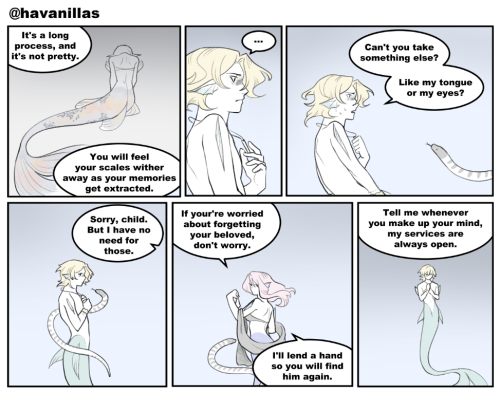

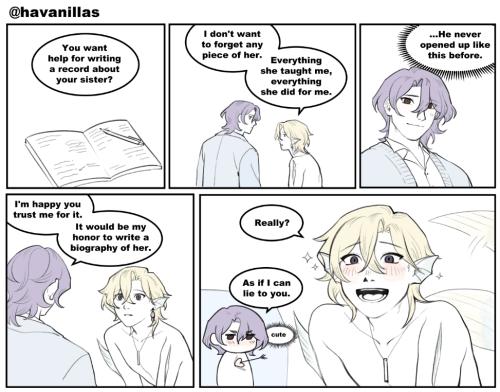
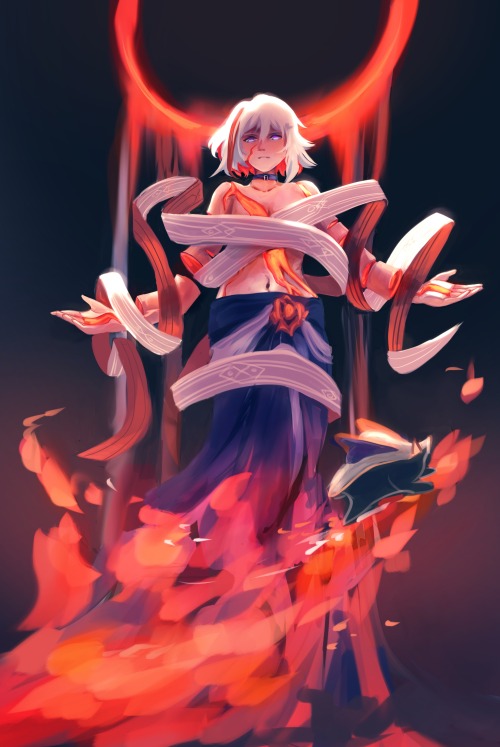


Aeons
I guess it's because his Warp is called 'gilded imprisonment', and the phonecall with Jade where he says 'I don't wanna bet anything just to escape your clutches'.
Kinda makes him a foil to Robin and warped parallel to Sunday in a way I think if you see him as thinking of his job as a gilded cage. It may not really be true, maybe he can walk away anytime he wants I'm sure he has the power and ability to even if hed be up for silencing if he left the Stonehearts, but he has nowhere else to go so he may just be trapping himself there with his own apathy. Hope that made sense lol
Always enjoy reading your thoughts ty for the food 🙏
(Will answer the part about the character foils in a different post because that is a whole long thing of its own!!)
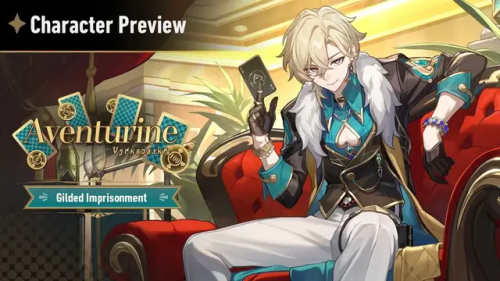
See, I definitely think this is the issue, because I have had people say that exact thing to me "Well his warp is called gilded imprisonment so that has to be referring to the IPC!" Like... Do people think the IPC has a monopoly on the word "gilded" or something? Or that "gilded" can only refer to literal gold coins and not any of the many, many metaphors for being a prisoner to destiny that are swirling around Aventurine?
"To gild" means to "cover thinly with gold." It doesn't mean to create wealth, to imply actual money, or even to relate at all to the concept of "golden handcuffs" (which is what people seem to be mistaking it for). Gilding could more accurately be described as a process of taking something cheap--like low-quality nickel--and plating it over with the thinnest layer of gold, to try to make the item seem much better than it is. Gilding something is often like dressing up a pig--you can make it look pretty on the outside, but on the inside, it's still a pig.

Just the thinnest layer of gold over a darker interior...
There's nothing about "gilded imprisonment" that automatically has anything to do with the IPC, unless you're already coming in with the impression that Aventurine is a prisoner of the IPC. If you start with a preconceived notion of what "imprisonment" means for Aventurine, then and only then do we make the jump to "Oh, this must be in reference to the IPC." Take that preconception out and there's zero connection lol.
Even the Chinese name of the warp, "囚石铸金" (lit. "Prison stones cast [in] gold") and other languages' translation of the banner name (like German's "Stein zu Gold," lit. "Stone to gold") imply that the most important element of the banner is "coating over something bad with something good"--i.e., turning prison walls into gold, turning the "stone" of his dark past into something shining. (This actually makes a nice irony in several languages, because he turned the rocky desert of his homeland and the stone walls of a prison into gold by... earning a Cornerstone and becoming a "Stoneheart"--or, that is, he himself is a "worthless" stone that has been thinly coated over in shiny wealth.)
But personally, if we really want to go by the English name of the banner, I would argue that it is much more likely Aventurine's banner name is a reference to his own troubled relationship with the concept of "blessings" and "destiny" than anything to do with the IPC.

From the beginning of his life, Kakavasha was told he was "blessed" and that he was the "chosen one." He was favored by a goddess, born on the day of her rebirth, and told that he will be the savior of his people. So, we can literally say he's the Avgin "golden child," which is further supported by the constant connection between Aventurine and gold colors (his golden-haired appearance, his mother's gold accessories with him since his birth, the word "Avgin" itself even meaning [golden] honey). So as the "golden child," we have this perception that his power of incredible luck, gifted to him by a goddess, must be a blessing, a good thing.
And yet that's not how it plays out for him. What his family tells him is a blessing ends up functioning more like a curse for Aventurine, when it becomes clear he can't use that luck of his to protect those who mean the most to him. He might be the goddess's golden child, the chosen one--but no one else is chosen with him. He's a failed savior, an incapable hero, and there is no escape from the destiny which has been decided for him.
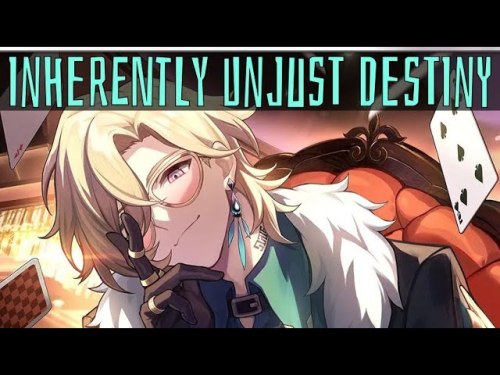
There's a reason his lightcone is called "Inherently Unjust Destiny." His own destiny, decided when he was born favored of an aeon, makes him a prisoner of the suffering that he can survive but never avoid.
We see how much this haunts him constantly throughout his experiences in 2.1...

To me, I would interpret the English banner name "Gilded Imprisonment" as much more related to how Aventurine's blessing, which is supposed to make him the favored, lucky, golden child, is actually nothing more than a thin veneer over the terrible destiny that binds him, continually costing him everything and everyone he loves.
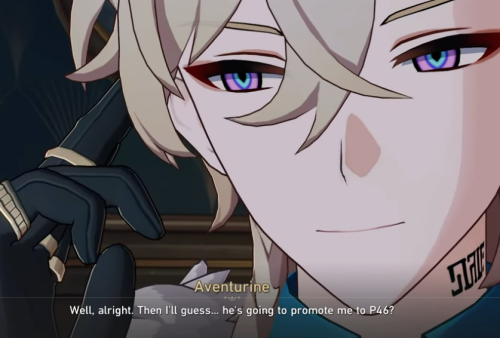
On to the other point entirely, I think people might also really be misinterpreting that sentence about "escaping Jade's clutches." Again, I think this relates a lot to the fact that people are coming into Aventurine's character with this preconception of him as a prisoner to the IPC, so they're interpreting this sentence in the most literal way possible ("I want to get away from you"), but that is actually not what Aventurine is saying at all there.
Jade's rank in the IPC is P46. If Aventurine is promoted to P46, he would no longer be her subordinate. Therefore, when he says "I don't want to bet anything just to escape your clutches," this is actually a (vaguely snarky, to be sure) compliment. Aventurine is saying "I don't want you to think I'm engaging in a bet [that I know I'll win] because I dislike working for you."

It's supposed to be flattery. He's saying "Don't think I'm trying to get away from you, oh great Madam Jade. I wouldn't try to make any bets just to get out of being your underling."
I think it's got a healthy dose of sarcasm to be sure, because Jade herself would have trained Aventurine to snatch every chance to get ahead. So now he's in the hilarious situation of having to balance the expected respect to his mentor ("Of course I would never want to leave you! You're the best boss!") with the fact that his own mentor wants him to be cut-throat at all costs lolol.
It's irony-laced flattery for sure.

That's why his next line is "Well, if it's just a friendly bet though, then sure, I'll engage." He's saying "So long as you know I'm not betting because I dislike working for you, sure, I'll play along." Because he knows that's what he's supposed to do--as a Stoneheart, he should be seizing every opportunity to advance. He virtually has to make this bet that he'll be promoted just to demonstrate the desirous personality that Jade would be expecting.
And honestly, it's supposed to be a callback to their first scene together too. They literally add that to text so people can't miss it. Kakavasha came to Jade as a person "hungry" to rise up the chain, to change his circumstances. He's making the same bet again to suggest to her that he hasn't changed in the slightest even after his experiences in Penacony.
(Now, why he's trying to act like he hasn't changed in front of Jade is another story, and "Aventurine is out to destroy the IPC" conspiracy theorists can run wild with this one for sure.)
But yeah. That line... really does not mean what people think it means, apparently.
Anddddd I'll get to the character foils in another post; this was already long enough as-is! 😂